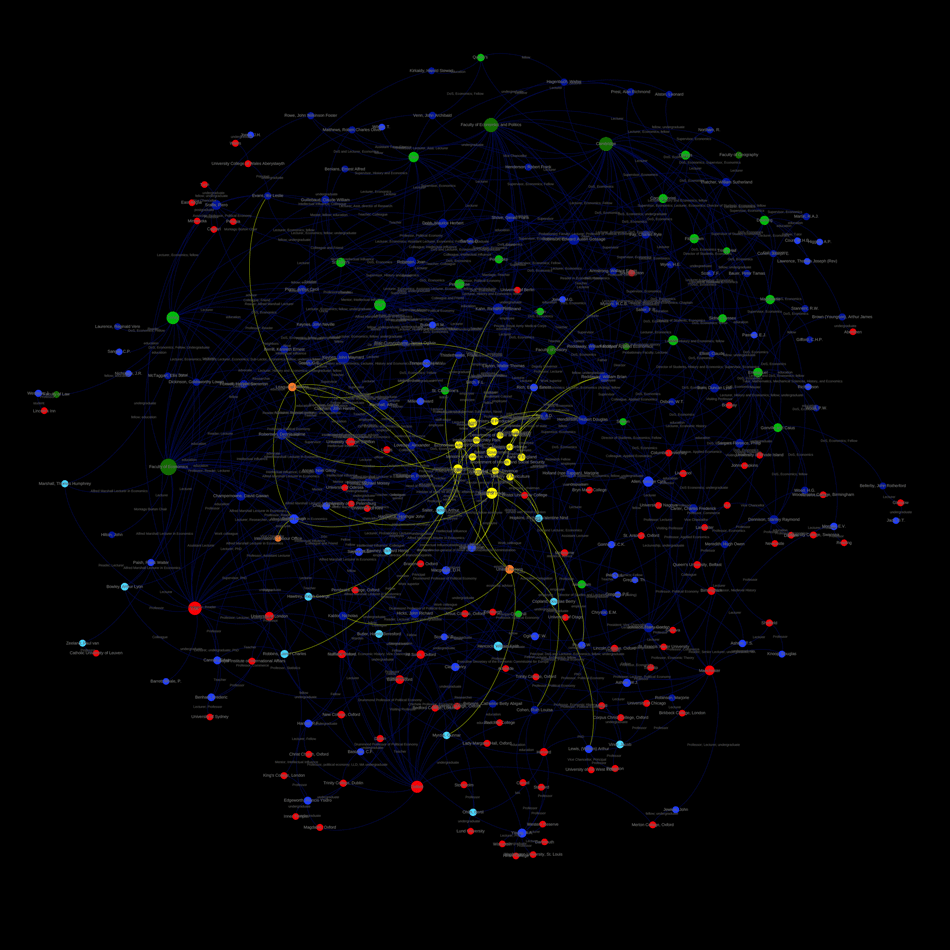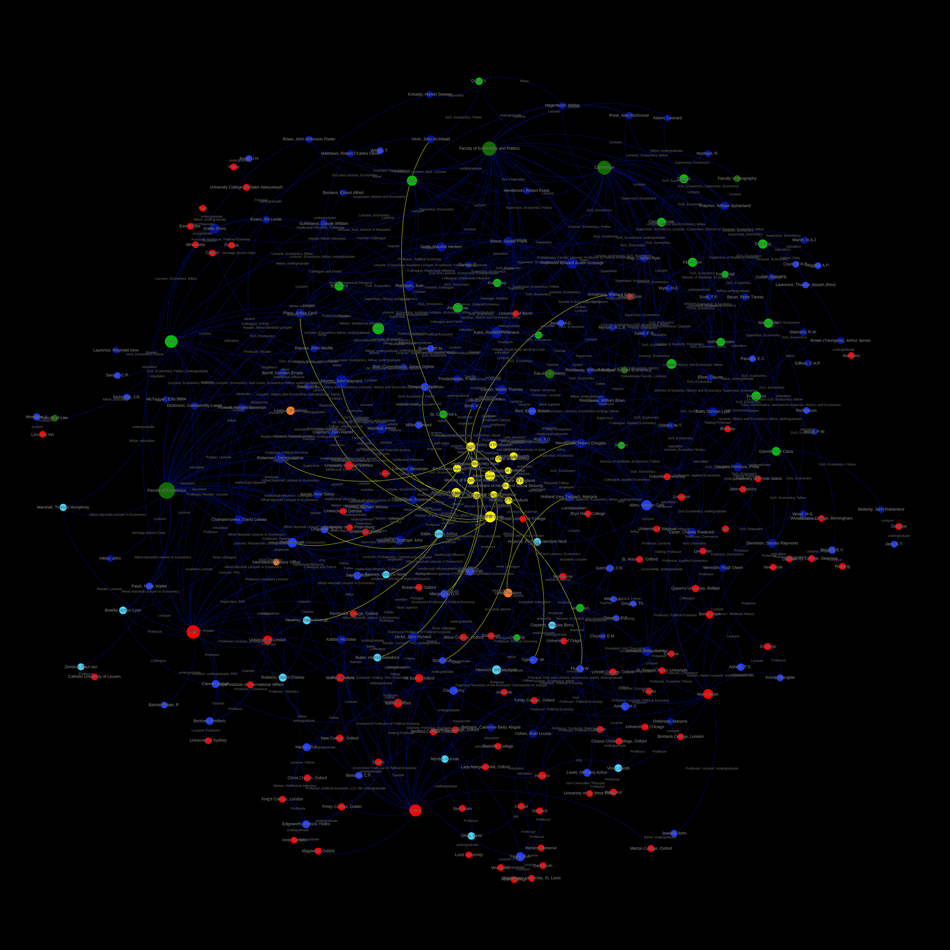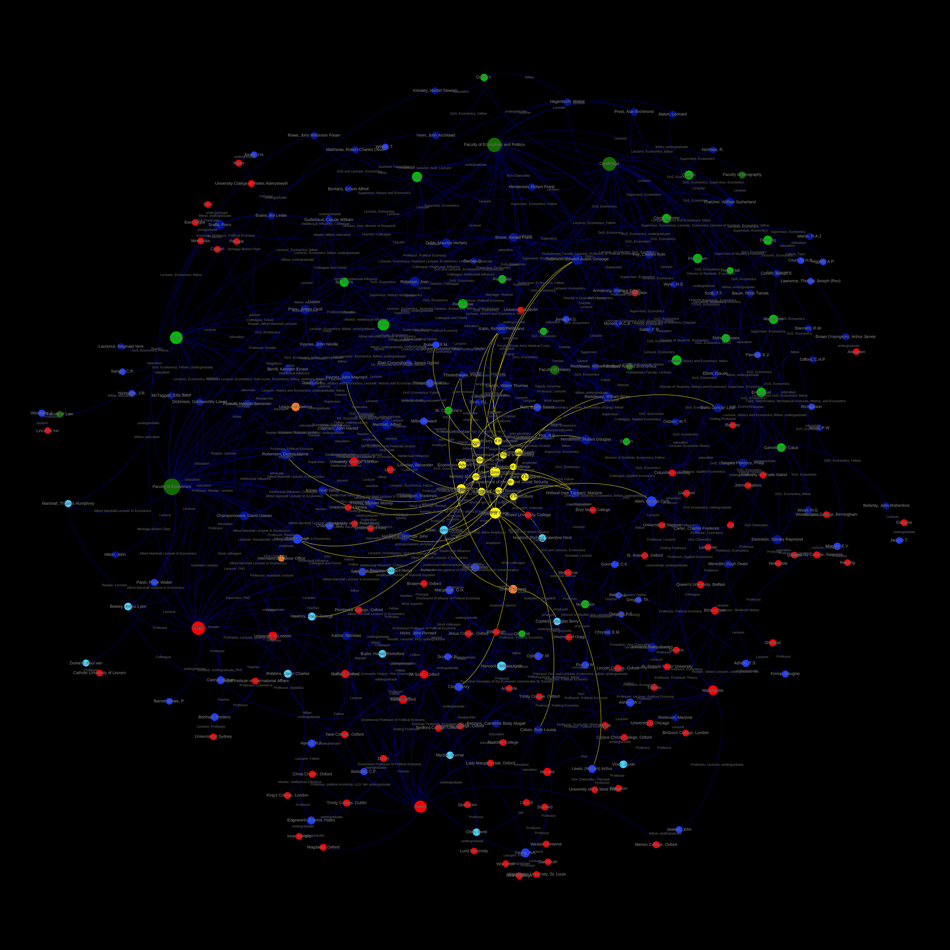WARTIME GOVERNMENT
These three static graphs compare how economists at Cambridge interacted with the British government during the two World Wars and in times of peace.
Download Data
Economists
![]() Fulltime
Fulltime ![]() Tripos Examiners
Tripos Examiners ![]() Alfred Marshall Lecturers
Alfred Marshall Lecturers
Cambridge Institutions
![]() Faculties and Departments
Faculties and Departments ![]() Colleges
Colleges
Other Institutions
![]()
Government
![]() Organs of the British Government
Organs of the British Government ![]() International Government
International Government
Learn More About:
-
HOW TO READ THIS GRAPH
These static graphs show how a large cohort of economists gained government work experience during periods of wartime. It was during these periods that many in the economics faculty commuted to London to staff offices in the Ministries of Supply and Production as well as in the Board of Trade. In peacetime, however, it is clear that many of the economists worked and advocated on behalf of international organizations (most notably the League of Nations and the United Nations, depicted in orange). It is also worth noting which economists served in the military, and that there was little overlap between those individuals and those who were advocates of international governmental organizations. -
HOW WE USE DATA
See the previous graph, "Government." -
THE HISTORY BEHIND THE MAP
During the two world wars, Britain and the other warring nations mobilized their labor forces and began to assert greater control over their economies. Some economists saw combat. Dennis Robertson served with distinction in the Middle East during World War I, writing long, emotive letters to Keynes from his barracks in Cairo. A.C. Pigou, through his service with the Friends' Ambulance Corps, saw the "mud-stained soldiery" and the "shattered ruins of Ypres Cathedral." Yet economists gained a very different sort of experience as well. As Britain engaged in nationalization, and experimentation in planned order, economists became the technical advisors and administrators of government agencies that affected such control. The wars created loci of interaction between economics and policy, throwing bureaucrats and theorists together under one roof.



